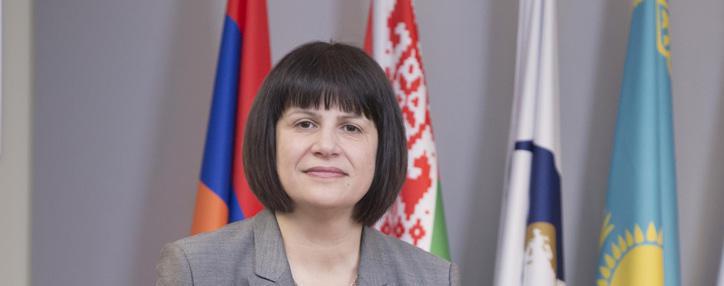Armenia to switch to unified EEU technical regulations
07.10.2015,
06:54
Beginning from January 2, 2016 Armenia will switch to the unified technical regulations of the Eurasian Economic Union (EEU), the Eurasian Economic Commission (EEC), the executive body of the Russia-led bloc said.

YEREVAN, October 7. / ARKA /. Beginning from January 2, 2016 Armenia will switch to the unified technical regulations of the Eurasian Economic Union (EEU), the Eurasian Economic Commission (EEC), the executive body of the Russia-led bloc said.
The upcoming changes, which will come into force on that date, were unveiled to the business community in Yerevan at a seminar on new safety requirements and product labeling for the Republic of Armenia in the Eurasian Economic Union by Eurasian Economic Commission Board member Karine Minasyan and representatives of the Commission's department of technical regulation and accreditation.
The seminar was organized by the Eurasian Economic Commission, Armenian ministries of international economic integration and reform and economy. The event was attended by representatives of government agencies and the business community of Armenia.
Karine Minasyan drew attention to the fact that the deadline for exemptions established by the treaty on Armenia’s accession to EEU, expires for most of goods in circulation in the territory of the EEU on January 2, 2016.
"This means that from January 2, 2016 all major technical regulations that apply in the EEU will take also effect for the products in circulation in the territory of Armenia. Nevertheless, Armenian entrepreneurs will have two more years to produce their goods in accordance with national legislation,' she explained.
Representatives of the EEC department of technical regulation and accreditation provided a detailed description of how the EEU market will be functioning in accordance with the new rules, including the procedure of conformity assessment of goods, the specifics of technical regulation of food products, the new labeling requirements for products traded on the territory of the union and others.
In turn, representatives of the business raised some disturbing aspects which may hinder the transition to the new requirements of technical regulation, such as the availability of relevant documents in the Armenian language, the transition to the regime of registration of documents on conformity assessment prior to the release into circulation of goods, and others. -0-
The upcoming changes, which will come into force on that date, were unveiled to the business community in Yerevan at a seminar on new safety requirements and product labeling for the Republic of Armenia in the Eurasian Economic Union by Eurasian Economic Commission Board member Karine Minasyan and representatives of the Commission's department of technical regulation and accreditation.
The seminar was organized by the Eurasian Economic Commission, Armenian ministries of international economic integration and reform and economy. The event was attended by representatives of government agencies and the business community of Armenia.
Karine Minasyan drew attention to the fact that the deadline for exemptions established by the treaty on Armenia’s accession to EEU, expires for most of goods in circulation in the territory of the EEU on January 2, 2016.
"This means that from January 2, 2016 all major technical regulations that apply in the EEU will take also effect for the products in circulation in the territory of Armenia. Nevertheless, Armenian entrepreneurs will have two more years to produce their goods in accordance with national legislation,' she explained.
Representatives of the EEC department of technical regulation and accreditation provided a detailed description of how the EEU market will be functioning in accordance with the new rules, including the procedure of conformity assessment of goods, the specifics of technical regulation of food products, the new labeling requirements for products traded on the territory of the union and others.
In turn, representatives of the business raised some disturbing aspects which may hinder the transition to the new requirements of technical regulation, such as the availability of relevant documents in the Armenian language, the transition to the regime of registration of documents on conformity assessment prior to the release into circulation of goods, and others. -0-



